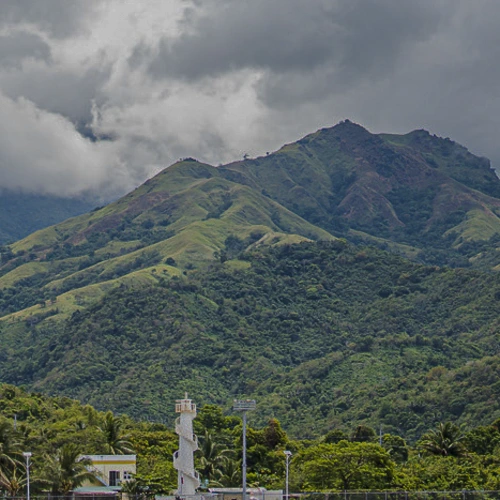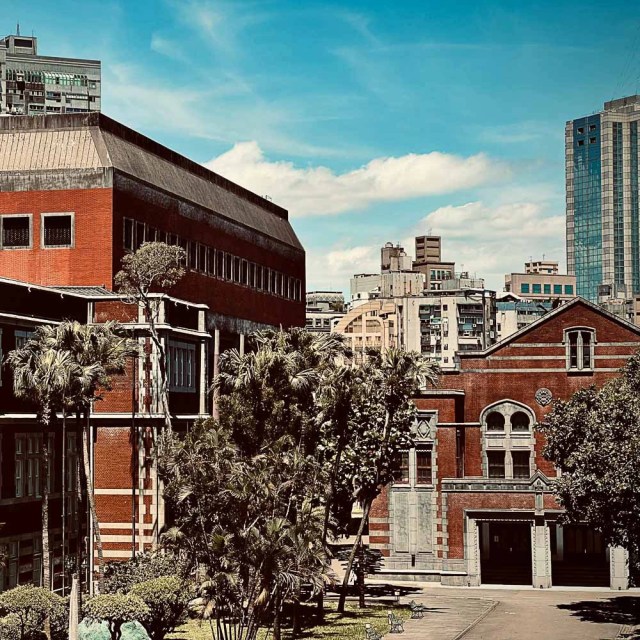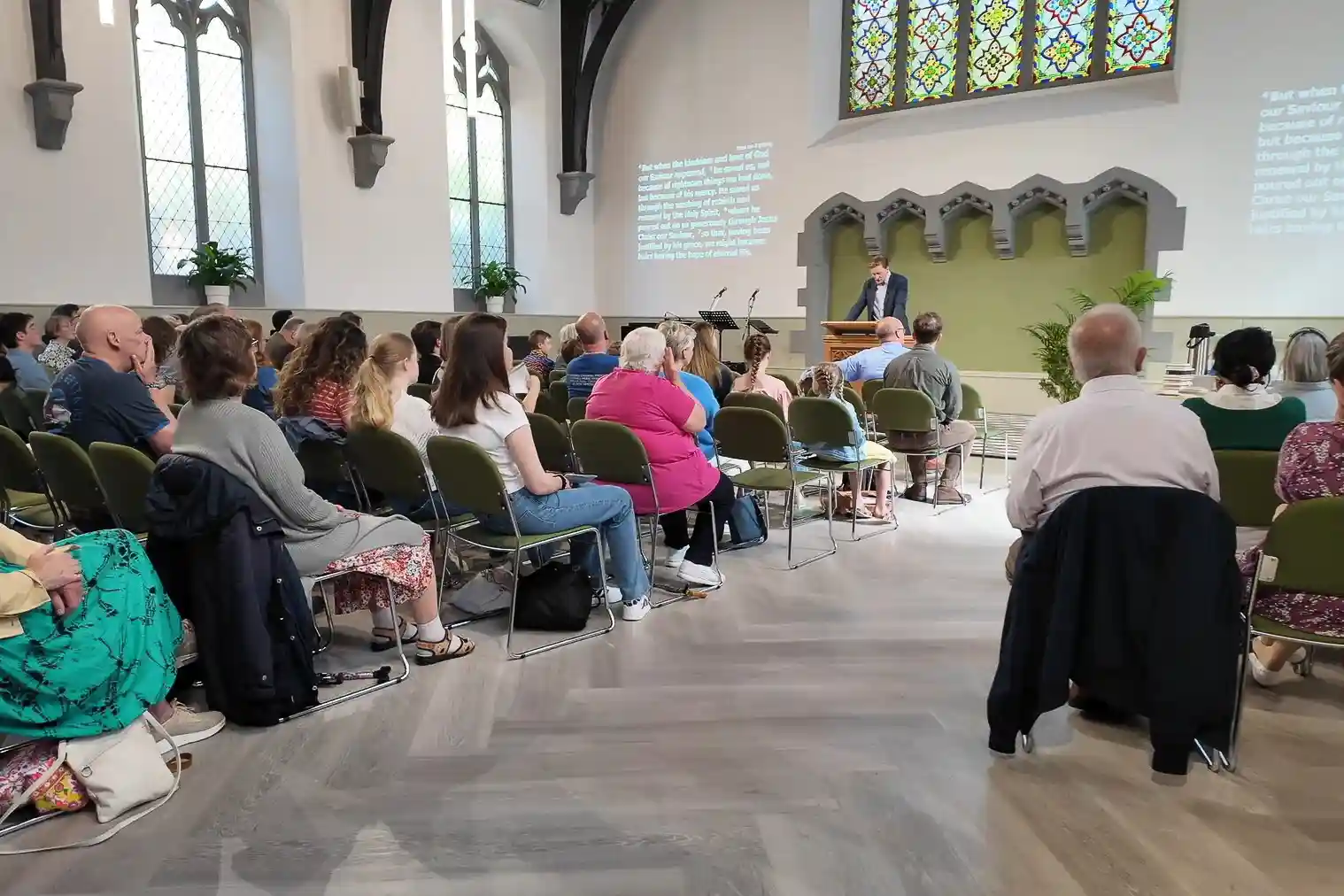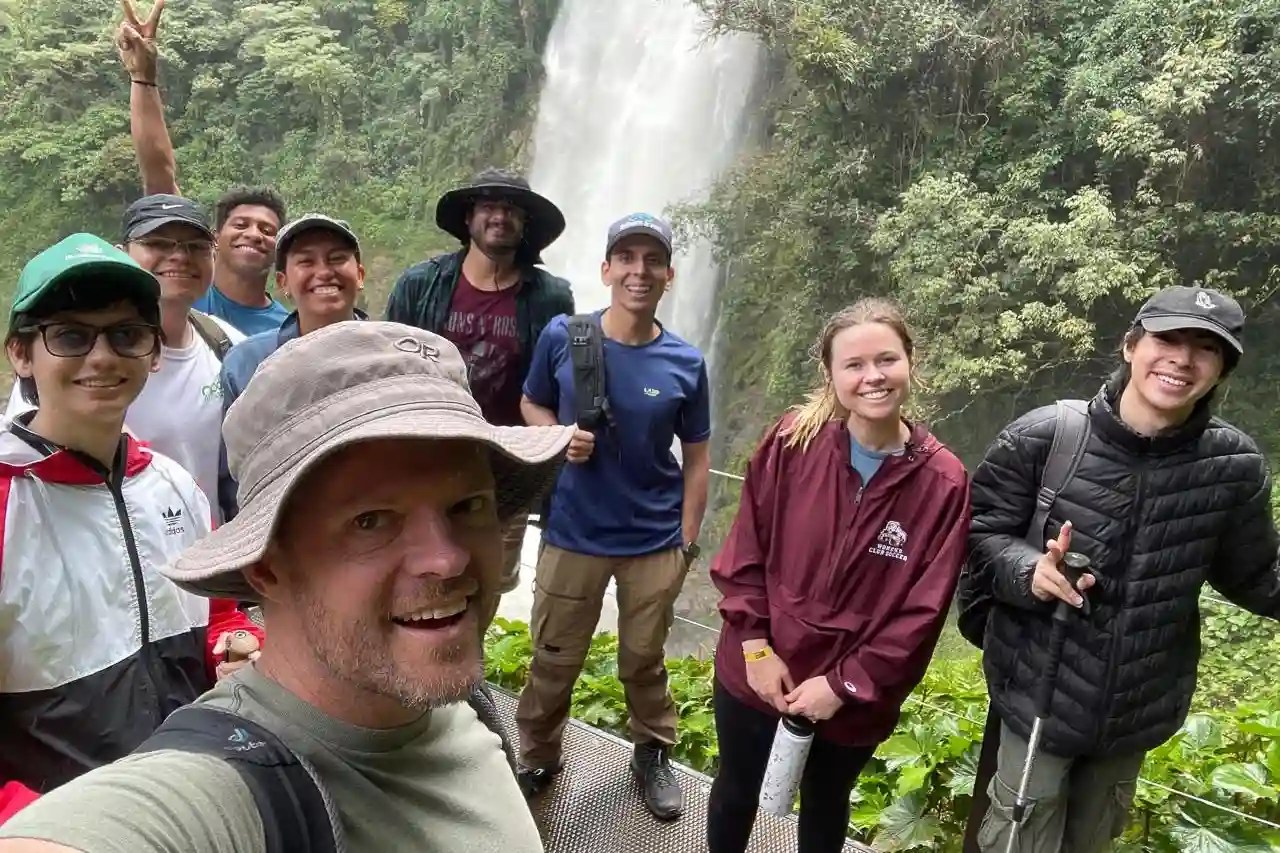The unbelievable story of one family’s call and missions work among the Mangyan tribes

In September 2018, James and Shine Lee took a trip to the island of Mindoro in the Philippines to encourage a group of remote Mangyan pastors and lay leaders whose communities had been severely impacted by a typhoon. There they met a Mangyan pastor who had tragically lost his wife and baby daughter in a landslide during the previous year.
Seventeen years ago, this man had never heard of the name of Jesus. But thanks to the sacrificial ministry of Shine’s father, Reverend Yong Ki Choi, he heard and believed in the gospel. When James and Shine saw him worshipping God joyfully, testifying to God’s goodness even through his immense pain, they were deeply moved. This was the moment God placed a burden in James and Shine’s hearts to continue the missions work Shine’s parents started almost three decades earlier.
The background to this encounter is a generational story that even the most imaginative author would be hard pressed to create. It involves dramatic spiritual moments, settings that feel like stepping back in time, and a peculiar medical diagnosis that sounds like an episode from a TV drama. It is also a story of our promise-keeping God, providentially working out every detail to care for His children and build His Church among the Mangyan people.
The pioneering sacrifice of Shine’s father
This story began more than 30 years ago in Korea when the Holy Spirit gave Yong Ki a compassionate heart for unreached people groups. As he prayed about a mission field, he had two impactful dreams God used to lead his family to the Philippines. In the first, he saw naked people with tan skin standing on top of a mountain, crying, “Help us!” Then he dreamt of a spinning globe that stopped in Southeast Asia with a flag planted in the Philippines.
Soon after, he visited the Philippines to explore the possibility of missions work there. After seeing the need for gospel ministry, especially among unreached people groups, he and his wife moved their family from Korea to Baguio to do evangelism and mercy ministry when Shine was 5 years old. After relocating to Cavite a few years later, he traveled to the island of Mindoro to scope a plot of land that a church member owned and had dedicated for a church building. During this trip, he finally found the people from his dreams.
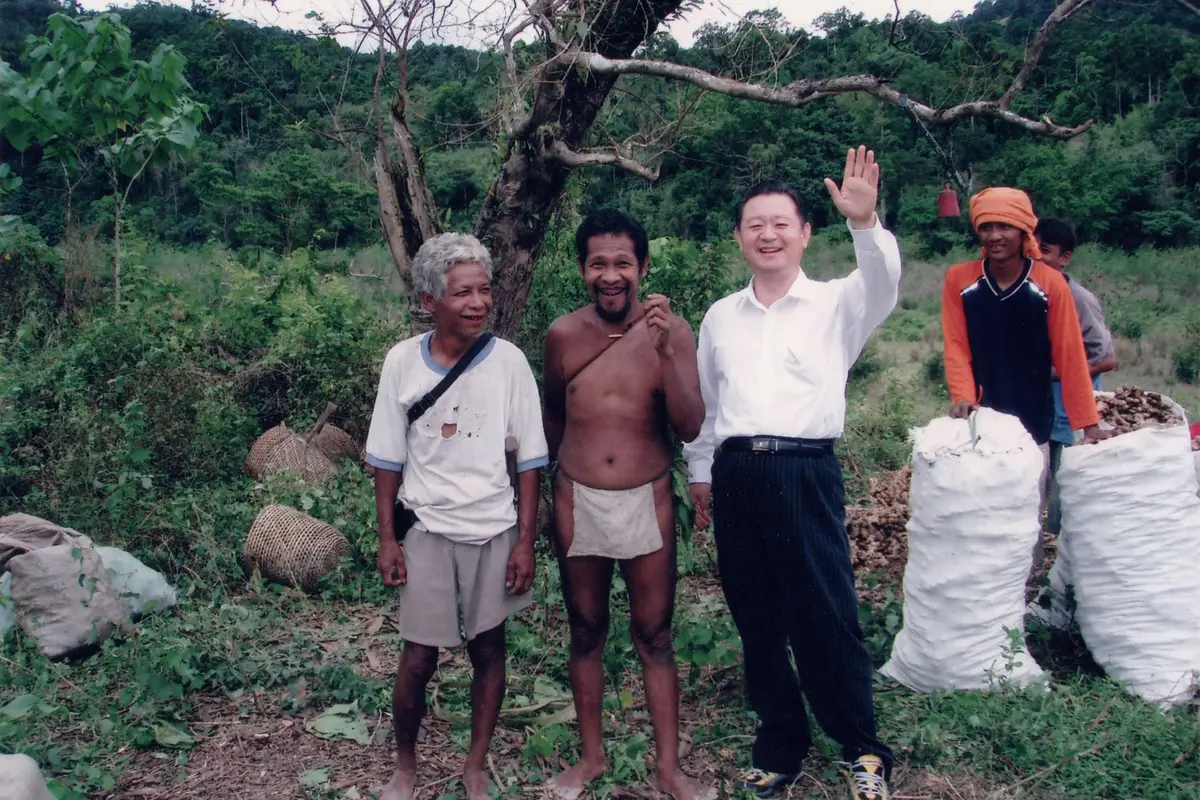
Mindoro is home to the Mangyans—a nomadic, agricultural, Indigenous people group spread out in eight tribes across the island. To this day, these tribes live isolated from the rest of the world and function without modern conveniences like running water, electricity, and paved roads. Some of the communities are so remote that the Filipino government doesn’t know the actual size of the Mangyan population. When Yong Ki met them, he immediately recognized them as the people crying for help in his dream—a people who did not have access to the gospel. He set out to change that.
Due to life-threatening health and safety concerns, Shine’s family could not move to Mindoro. As a result, her father would make the arduous 15-hour journey from their home on the mainland.
“In the beginning, I faced many obstacles while trying to meet and connect with the Mangyans. Traveling to Occidental Mindoro was extremely difficult and physically demanding. At first, it was challenging to communicate with the Mangyans because of the language barrier. I initially focused on sharing the love of Jesus Christ with the Mangyans through my actions,” says Yong Ki.
According to Shine, the Mangyan people are shy and reserved. She says that to make them feel more comfortable, her father removed most of his clothing and learned their language. He would then walk the unpaved terrain hoping to see a Mangyan person hiding in the brush and engage them in a gospel conversation.
“That was Shine’s father’s gift,” says James. “He didn’t mind walking the shore for hours until he met a Mangyan community and then broke into it. And then he would walk for hours again and meet some other community by the shore. That’s how he actually planted five churches in one of the regions, by literally just walking the shore for hours.”
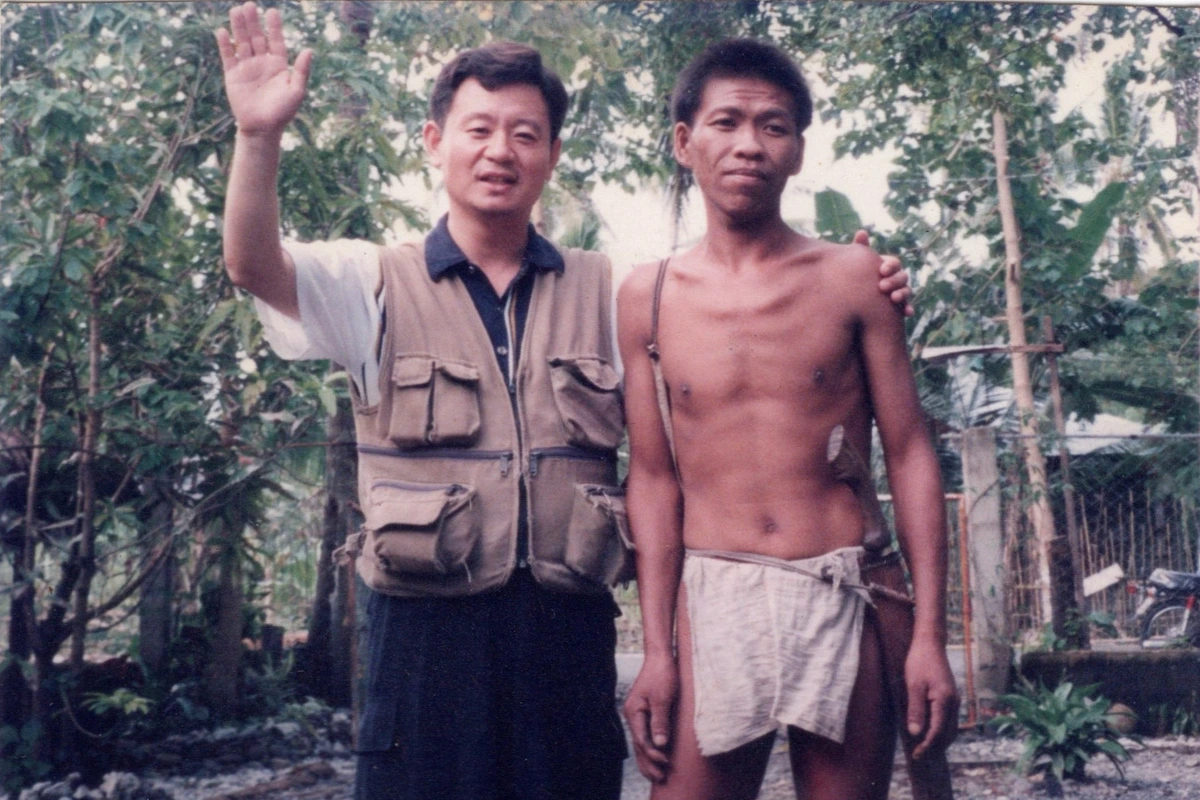
“Whenever he would leave our home to be in the mission field, he would be gone for one to two months. We wouldn’t know how to reach him,” says Shine. “We wouldn’t know how he was doing until he returned.”
Culturally, the Mangyans are animistic and believe there are several gods, each with their own sphere of control, e.g., the god of the sun, the god of the wind, the god of the water. Shine’s father broke down the gospel into its basic message, explaining to the Mangyan communities that there is an all-powerful God who created the world for human beings. This God then sent His son to die for their sin and to eventually rid the world of all pain, sadness, hunger, and death. He told them if they believed, trusted, and accepted Jesus, they could also be God’s children.
They responded to this life-giving message with the amazement and emotion it is due. Many of them believed.
“They shared, ‘We’re like dust, we’re nobody, but God loves us? How would someone send their son for someone like us?’” says Shine. “And so even to this very day, it’s been 33 years, when they see their pastor [her father] coming back for them, they cry because they’re so touched a pastor would come for someone like them to share about Jesus.”
Their joy was contagious. As challenging as missions work among the Mangyan people was for Shine’s family, it was nothing compared to the blessing of watching God build His Church from scratch among this unreached people group.
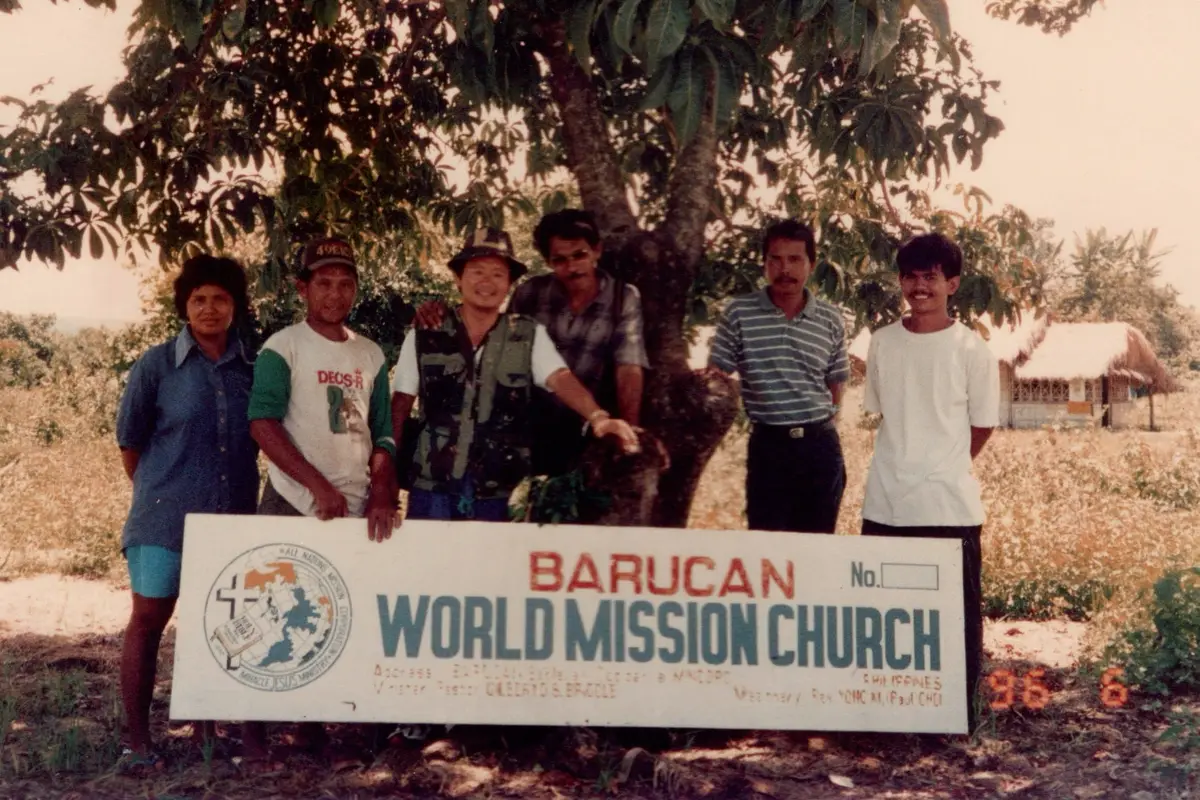
“Because of the calling that I have received from God,” Yong Ki says, “I was able to continue this missions work in Occidental Mindoro with joy and gratitude. What enabled me to gladly endure many hardships was my heart for the souls of the Mangyans. I wanted to share the gospel with as many Mangyans as possible,”
Yong Ki and his wife committed the next 33 years to evangelism and church planting among the Mangyan people in Occidental Mindoro. Over that time, Shine’s father helped train and disciple over 40 Mangyan pastors—some of whom took 19 years to get ordained because they couldn’t read or write when they first became Christians. He also established All Nations Missions School in Sablayan, a seminary on the original plot of land that brought him to the island in the first place. By God’s grace, their labor has borne remarkable fruit. Today, there are 45 Mangyan churches spread across the island, each with its own building, and more than 150 house churches.
“When I think about how God, from then until now, has been faithful, and how God loves the Mangyan tribes, I am so moved. And sometimes I am at a loss for words,” says Shine.
The impact of her father’s ministry did not just shape the Mangyan church but also planted a dream in Shine. From an early age, Shine was captivated by the joy and purpose of a life devoted to missions. At just 5 years old, she desired to become a missionary herself. What she didn’t realize was that God was preparing her for a challenging journey—one that would ultimately lead her back to the very place where her family’s ministry first began.
An extremely rare immune disease leads to an unwanted detour
While Shine knew she wanted to be a missionary from a young age, James grew up resisting the idea of ministry. He was born in Korea with an incurable condition and doctors told his Buddhist parents he wouldn’t live past infancy. One day their neighbor’s pastor came to their home and prayed over James. He began to get better and his parents, seeing that their son was healed, believed in Christ. His mother dedicated James to a life of serving God.
“I grew up hearing, ‘God saved your life so you’re going to be a pastor one day.’ To which I thought, ‘Over my dead body! I’m not going to be a pastor.’ So I was the black sheep because I was dragged to church every Sunday and I hated it,” says James.
But God’s plan for James was overseas. At 12, his family immigrated to the U.S. and toward the end of high school he began wrestling with the possibility of missions. God confirmed this calling during James’ college years. Upon graduation, he attended Westminster Theological Seminary in Philadelphia and met Shine, who was studying at Philadelphia Biblical University (now Cairn University) to prepare for missions. They started dating and began imagining a life together on the field.
That is, until Shine got inexplicably sick.
When she first developed symptoms, no one knew what was wrong. Her brain scans showed an aggressive, cancer-like mass rapidly growing inside of her head but doctors couldn’t figure out what the pseudotumor was or how to treat it.
“It looked like a porcupine, and it was about to infiltrate the lining of her brain so we knew this is really serious, a matter of life and death,” says James.
All their life plans—especially missions—suddenly came to a screeching halt. They spent the next two years on a wild goose chase to get a diagnosis. At one point, James, in his desperation, reached out to the head of the ENT department at the Hospital of the University of Pennsylvania for a consultation.
When the doctors at the HUP couldn’t figure out the nature of this pseudotumor, they referred Shine to the head doctors at Massachusetts General Hospital who were also stumped. They then referred her to their doctor who only treats patients with unique tumors (or “the real-life Dr. House,” as James likes to call him). After carefully studying Shine’s condition, he brought in MGH’s director of clinical rheumatology who, at last, accurately diagnosed Shine’s condition. She had IgG4-related systemic disease, an extremely rare autoimmune disease. At that time, she was patient #13 in the world.
Unbeknownst to the Lees, the director of clinical rheumatology wrote petitions to the hospital and pharmaceutical companies which opened doors for Shine to receive life-saving treatment at MGH free of charge. James and Shine got married two weeks after she started treatment, which involved going to MGH every six months for infusions. As the years went by, Shine’s symptoms began to subside, the pseudotumor began to shrink, and they began to think about missions again.
This is only an outline of Shine’s health battle. Written between the lines were moments of intense pain and suffering, crushing disappointments, and broken dreams. But the Lees are all smiles as they look back on this unwanted detour.
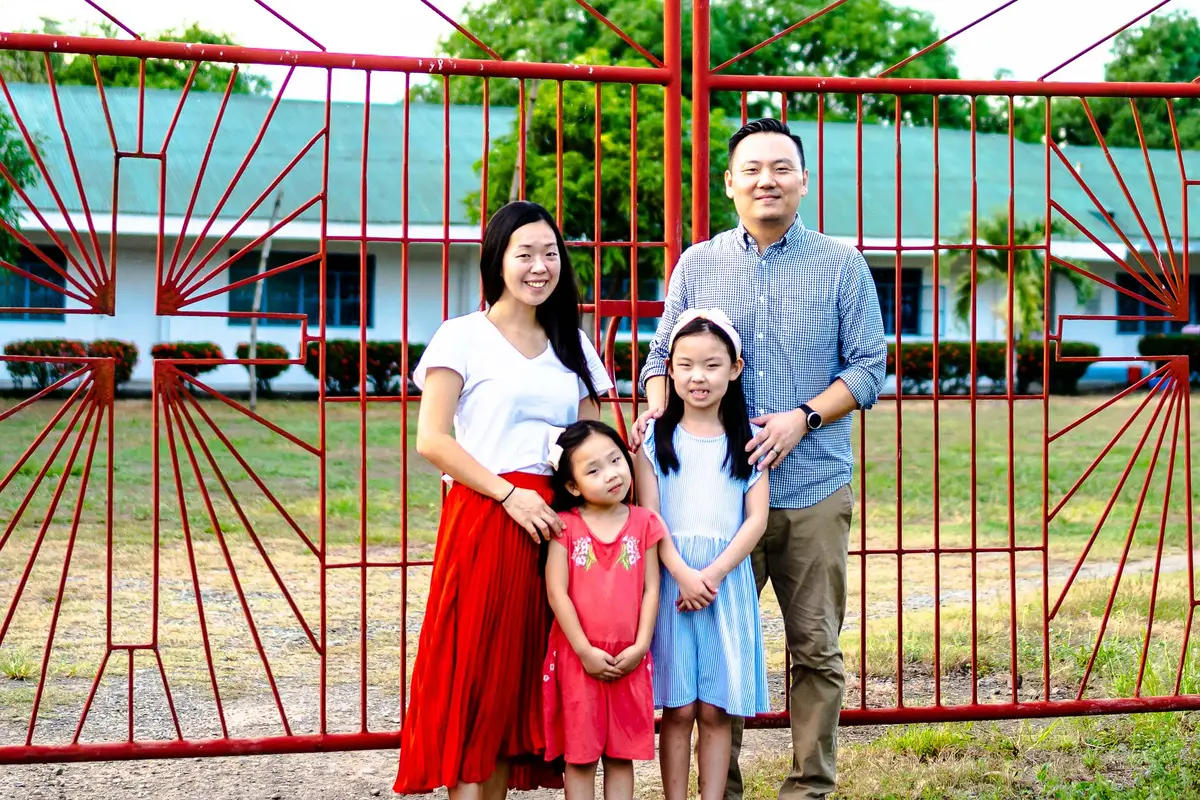
“I’m getting goosebumps again hearing what God has done in our own story,” says James. “It’s just God’s meticulous care—leading us to the right people, and then, literally, to the only doctor who could treat her at the time. … The medical bill was over $150,000 but God just wiped it away … It’s good to be reminded that God is able to do immeasurably more than you can ask for.”
God-given joy even in suffering. This was what James and Shine saw in the Mangyan pastor when they visited the Philippines after the typhoon. It reflected their own story and the Lees walked away from that trip feeling a conviction to continue serving the people Shine’s family had loved and worked with over the past 33 years.
The next generation teaching the next generation
After two years of preparation, James, Shine, and their two little girls moved to the Philippines in the summer of 2022 to serve as full-time MTW missionaries. Since then, Shine’s father named James the next president of All Nations Missions School and officially passed the baton to his daughter and son-in-law.
“I am so thankful that God has called Shine and James to continue this missions work in Occidental Mindoro. It is truly one of the greatest blessings in my life. I would not trade it with anything else in the world,” says Yong Ki.
“God knew not to send me during the pioneering stage because I would not have lasted,” jokes James. “With our ministry experience and gifting, I think it’s much more fitting that we came now as we look at our current ministry needs. We want to devote the next 25 years to creating this pipeline that will continuously produce healthy leaders.”
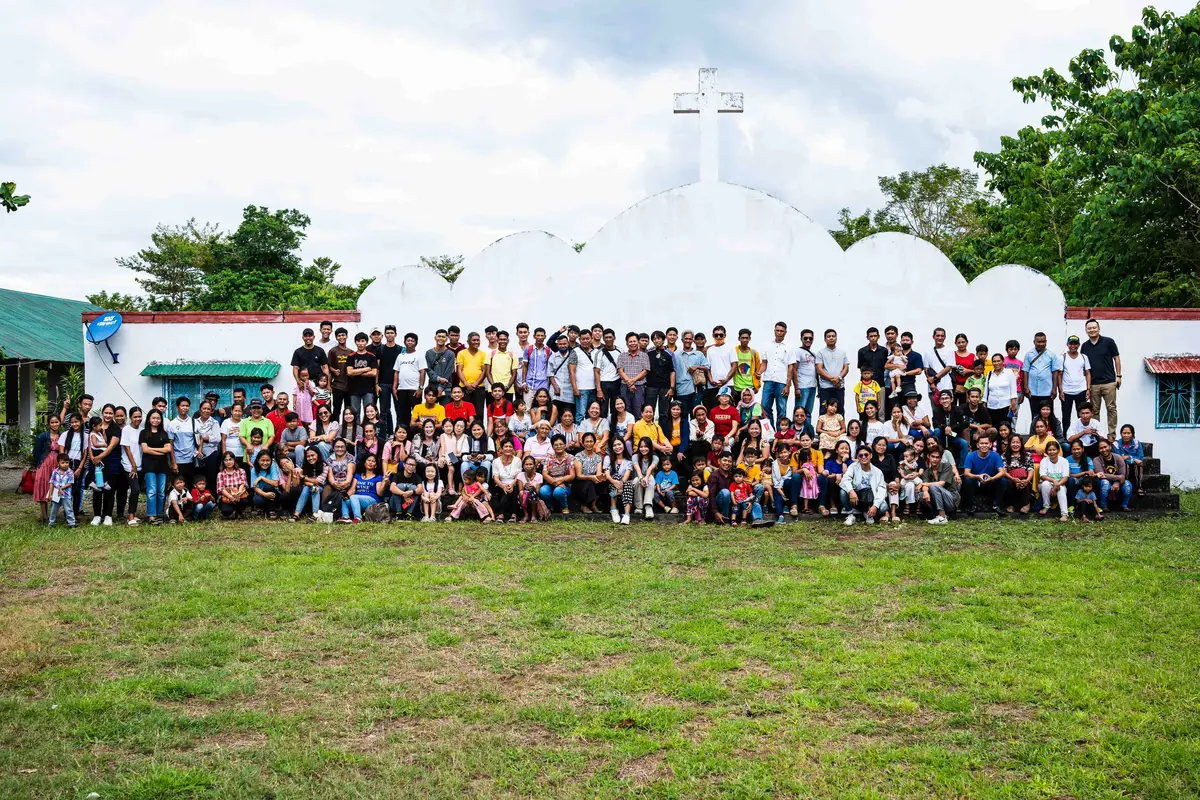
Healthy leaders, healthy churches, healthy communities. This is their team’s vision and tagline. Right now, the Lees are focused on theological education and leadership development, both to provide ongoing support for the current group of Mangyan pastors and to raise up the next generation of pastors for the Mangyan church. All Nations Missions School is their ministry hub and James and Shine meet with pastors and lay leaders once a month for training, discipleship, and accountability.
In addition, the Lees are praying and working toward establishing mercy ministries to address the significant needs in the Mangyan communities. One near-future goal is to open a medical clinic. The Lees, their partners, and the churches also provide emergency relief and assistance to Mangyan tribes and local residents during typhoon season.
Both their short- and long-term goals will require consistency and hard work. The Mangyan tribes still live removed from the rest of society and function without electricity, running water, modern medicine, and formal education. The Lees are praying God will provide people committed to strengthening and expanding the Church in this unique context. But, as they know from personal experience, God is able to accomplish more than we possibly dare to imagine. He saw the Mangyan people when no one else did and in His mercy, sent Shine’s family to proclaim the gospel to them. They have now been forever grafted into God’s eternal family.
He carried James and Shine through their own trials as they wondered if Shine would ever get a diagnosis and treatment, if she would survive her illness, if they would be able to afford the treatment, and if they could serve in missions. And so, the Lees pray for God’s continued provision, confident He will keep His promise to build His Church through every figurative and literal storm, every generation, and every unlikely detail.
If you are interested in serving with the Lees, please fill out our Get Started form and someone with MTW will be in touch with you.

